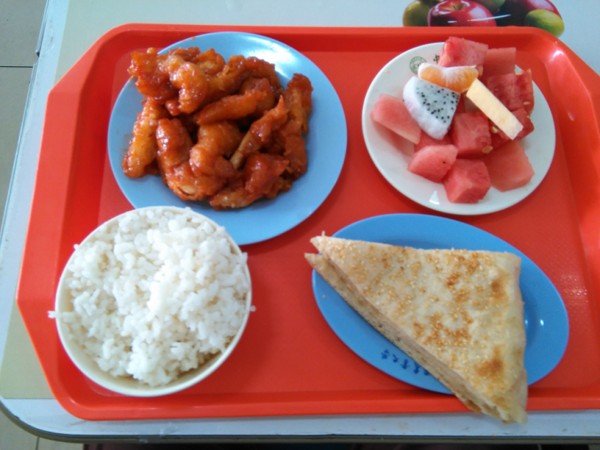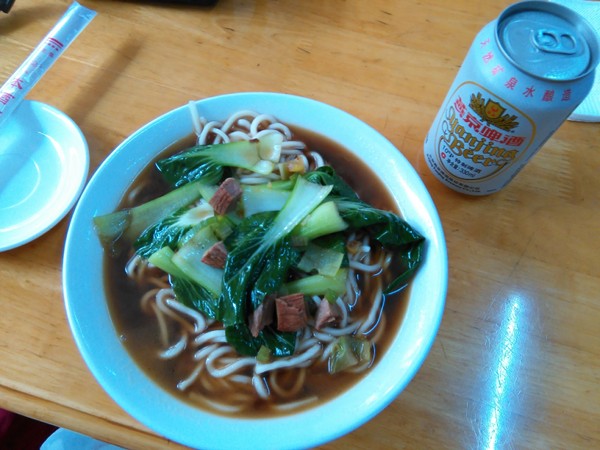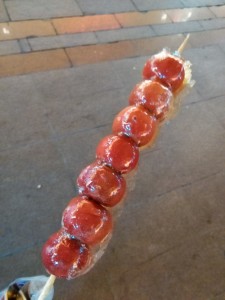I meant to publish this earlier but have been kept busy by settling in (re: adjusting to jet lag) and preparing for my classes. I’ve been in Beijing, China for three weeks and it’s been a pleasant experience so far. Below you’ll find a few of my first impressions of China. They say first impressions are important but, in case of travelling, it’s hard to determine when exactly my first impression of China formed so take the below for what it’s worth. If you’re wondering what I expected from the country, you can read my previous post here.
Food. Loving it so far. Although most of my meals come from one of the campus cafeterias, I’ve ventured out a few times and haven’t really been disappointed with what I’ve had so far. I’m not sure if it’s because it breaks up my day but I look forward to each meal. It hasn’t been anything too weird, though I did see scorpions and tarantulas on offer but decided they were too rich for my pocket right now. What have I eaten so far? Everything form roast duck to Beijing noodles to fruit and rice, it’s been tasty. I don’t know the Chinese names for a lot of these but it comes down to beef, kung pow chicken, roast duck, fruit, rice, soup, noodles, some sort of egg/omelet street food, a pretty good pizza and some sugar-coated fruit the name of which I was told but promptly forgot. Here are a few pics:
Drinks. Strangely, unlike Korea, I haven’t found much of a drinking culture here. To be fair, this might just be me as I settle into the groove of things. There have been one or two work get-togethers but not nearly as much as what went on in Korea. That being the case, I have had the chance to sample a few local brews. Tsingtao and Yanjing are the prominent brands of beer, followed by Beijing beer. “Light” would almost be an understatement, even the Lonely Planet guidebook states that you could drink a bathtub of this stuff and still walk a straight line. They’re right, though I don’t think it was a bathtub. In any event, I’ve also tried out the local liquor known as “baijou”. There are three kinds I’ve tried: the clear type, the cinnamony red stuff, and then the stuff that had black ants in it. Yep, black ants. The cinnamony stuff burned a little, the clear stuff was, for lack of a better description, kinda like a pizza burp, and the stuff with ants, although it had a bite to it, I nearly vomited because the ants get stuck in your teeth and, well, remind you of other stuff that can stuck in your teeth if you’ve drank too much. That being the case, highly recommended to try them out!
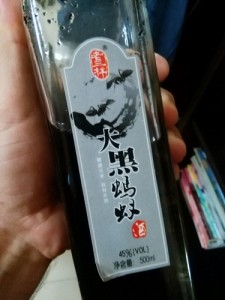 |
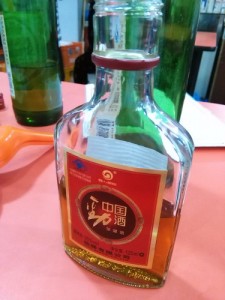 |
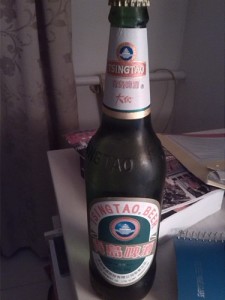 |
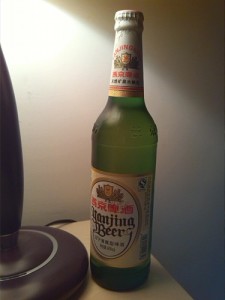 |
Pollution. I don’t think this is a secret because even Beijingers will tell you that their city’s air is terrible. The air has cleared up a few times since I’ve been here, notably after a rainfall, but the other fallout from that is that it’s probably acid rain and, even worse, the mosquitos come out in full force once the rain stops. My first thought looking out from the airplane was “Where’s the blue sky?” And that haze didn’t lift for days. I’d been told about the Beijing air before I arrived but somehow it didn’t hit me until I arrived. I remember wondering, “Is that fog, is it going to rain or is that what I think it is? Pollution?” And although I was kinda disgusted with the idea of living that shit, another thought struck me…
Beijing, the capital of the world’s manufacturing powerhouse. Beijing, if anything, stands as a testament to the progress, both economic and industrial, that China has undergone for decades. This is an overnight thing. Go to your local store and count how many items you can find that DON’T have “Made in China” written on it. The simple matter is that Beijing’s air is part of an urbanizing country that has been the world’s manufacturer for the better half of the last century. That manufacturing output doesn’t come without a cost. And as investors in the West say that China’s economic slowdown is going to hurt the global economy, what’s seems to be happening (according to the papers at least) is that China is moving from an export/services-based country to a self-sustaining economy. That is to say, instead of trying to sell stuff to others, China is focusing on getting its own people to buy stuff, and that makes it the biggest consumer markets in the world, competing only with India.
Language. I won’t even pretend to have begun to understand the Mandarin language. Apparently Beijing is the place to learn “proper” Mandarin, that is, the type used in official documents. No wonder since it’s the base of the government. In any event, I’ve begun learning the numbers which, like Korean, follows a relatively straight path of 10 digits, and then repeats in combinations with no change in pronunciation until you get to 1000 and up. For example, 1 is “yi” and 2 is “er” and 10 is “shi”, but 11 is “shi yi” and 20 is “er shi”, and so on. I’ve been told that spoken Chinese is easier since, aside from the tonal aspect of the language, it doesn’t change much, while the written form is much more complicated, requiring not just memorization of quite a few characters, but the knowledge of how they combine in any given context. (Hint, there are quite a few).
Internet restrictions. I was unprepared for the reality of government-controlled internet, that is to say a word that would probably get this here site blocked in the country, too. In any event, I’ve finally figured out how to access the sites I need to and, in addition to some more tech-savviness, understand just how closed off parts of this country really is from the rest of the world. On the other hand, I can almost entirely advocate setting up a business here in China (with a population of over 1.3 billion people) instead of back in the West. Granted, it’s probably not as easy as it sounds. However, it is interesting that, in a country with such restrictions, the amount of people (re: locals) you meet that utilize these programs is kind of astounding.
The Chinese People. Although I’m situated in a university district, it’s been a pleasant experience so far, even though when I travelled with another professor to Tien An Men Square and were subsequently called for photo ops. I haven’t been stopped/hassled nearly as often as I have in other places but I’m told that’s because Beijing has become much more of a cosmopolitan city in the last 10 years or so. Overall, people have been friendly and very understanding when it comes to my horrible attempts at Chinese.
Cost. Ah yes, the all-important cost of living. Although Beijing is much more expensive than I thought it would be (a grande dark roast at SBUX is 20 Yuan ~$3.63 CAD), living on campus has made it more affordable than elsewhere. Complete with a small “CDB”, the campus offers just about everything I need in order to live comfortably and then some. Food is cheap, transportation is cheap, my cell phone was cheap-ish, and I currently don’t pay for rent or utilities while living on campus. To give you some idea, here’s a small breakdown:
- bus ticket 2 RMB ~$0.36 CAD, subway 3 RMB
- beer 6 RMB ~$1.09 CAD
- most meals aren’t more than 20-30 RMB ~$3.63-$5.45 CAD
- movie ticket (at the cinema) 80 RMB ~$14.54 CAD, (online) 20-40 RMB
- cell phone plan/month 50 RMB ~$10 CAD
And so that’s just the beginning. I’ll post more about Beijing itself and how life unfolds in this country.
